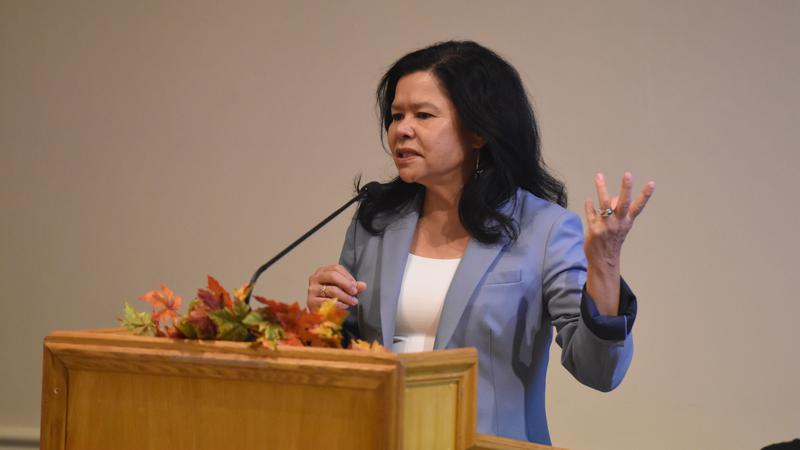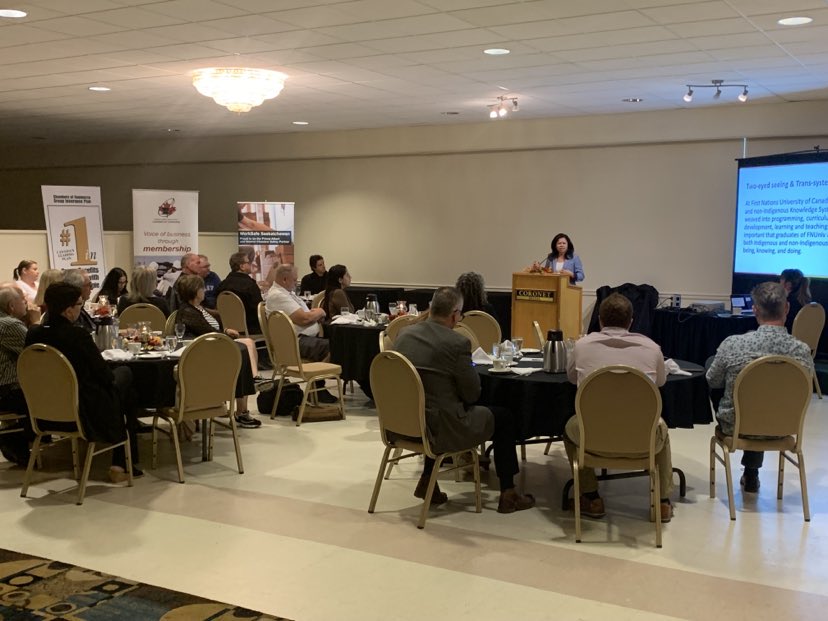
P.A. business leaders learn about future campus of the First Nations University of Canada
Right now, it’s just an empty field with grass flowing in the wind next to Prince Albert’s Victoria Hospital.
But in a matter of years, that field will soon house a new university campus that will offer a wealth of opportunities for Indigenous and non-Indigenous students from northern Saskatchewan and across the world.
The First Nations University of Canada (FNUniv) will soon build a brand-new northern campus to replace the current building on Central Avenue in Prince Albert. It’s expected to house 450 students and have space for community events and gatherings.
Last fall, the northern campus had almost 320 students enrolled and it’s expected those numbers will only increase.



